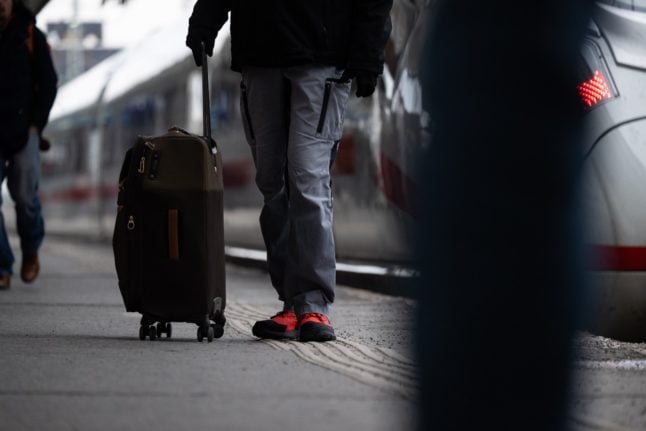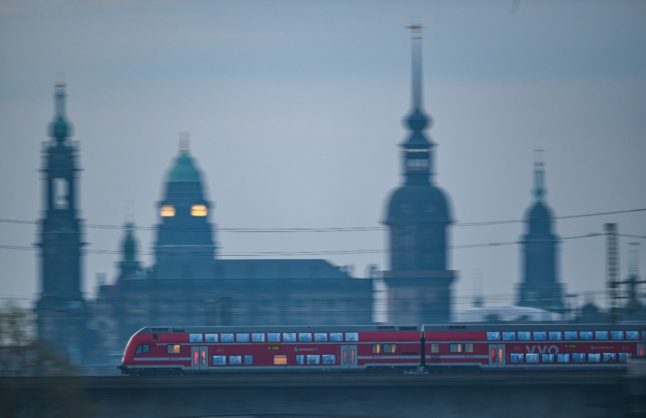France’s high-speed rail network was hit by a series of “connected” arson attacks on Friday that severely disrupted the transport system hours before the opening ceremony of the Paris Olympics.
Some 800,000 passengers have been affected, train operator SNCF revealed.
“This is a massive attack on a large scale to paralyse the TGV network,” SNCF told AFP, adding that many routes would have to be cancelled and the situation would last, “at least all weekend while repairs are conducted”.
The attacks not only affect those travelling to Paris for the Olympics, but also Parisian holidaymakers trying to leave the city on one of the busiest summer weekends.
In Germany, the impact has also been felt on cross-border routes in the southwestern states of Rhineland Palatinate and Baden-Württemberg.
READ ALSO: What are my rights if a train is delayed or cancelled in Germany?
Speaking to SWR on Friday, a Deutsche Bahn spokesperson revealed that all express train connections from Germany to France had also been badly affected.
DB is in “close dialogue” with their French colleagues at SNCF, they added.
Here are the lines affected as of early afternoon on Friday:
Stuttgart – Karlsruhe – Paris: The ICE and TGV connections between Stuttgart and Paris via Karlsruhe are severely delayed. Travellers can currently expect delays of up to one hour. According to Deutsche Bahn’s traffic information, at least two connections between Stuttgart and Paris are cancelled.
Mannheim – Karlsruhe – Paris: The connections here are significantly delayed.
Mannheim – Kaiserslautern – Paris: According to Deutsche Bahn, this TGV and ICE connection will be completely cancelled on Friday.
According to Deutsche Bahn, there are delays and cancellations on these western routes because the trains in France will have to be rerouted large distances. However, the rail operator doesn’t expect there to be a major impact on other domestic routes in Germany.
Passengers affected can stay updated by keeping an eye on the Deutsche Bahn website and anyone with a ticket between Germany and France due to travel today can rebook free of charge.
Could similar attacks happen in Germany?
That’s the opinion of Germany’s leading intelligence agency, the Bundesamt für Verfassungsschutz (BV), who released a statement on Friday warning of heightened threats.
According to the BV, there is a “serious risk” of attacks on critical infrastructure in Germany at present, both from hostile states and from terrorist groups.
READ ALSO: How prepared is Germany in the event of a military attack?
Recent threat analyses have shown that there are numerous vulnerabilities that could serve as gateways for attacks, BV warned. Foreign intelligence services would be well-placed to exploit these in order to carry out acts of sabotage in Germany.
While threats from hostile actors are nothing new, the risk level has increased in the wake of Russia’s invasion of Ukraine back in 2022.
Since then, there has been a significant uptick in the number of attacks – and attempted attacks – carried out in Europe and on German soil.
For more information and the latest on the France attacks, check out our coverage on The Local France:
READ ALSO: Which services are affected by arson attacks on France’s train network?




 Please whitelist us to continue reading.
Please whitelist us to continue reading.
Member comments